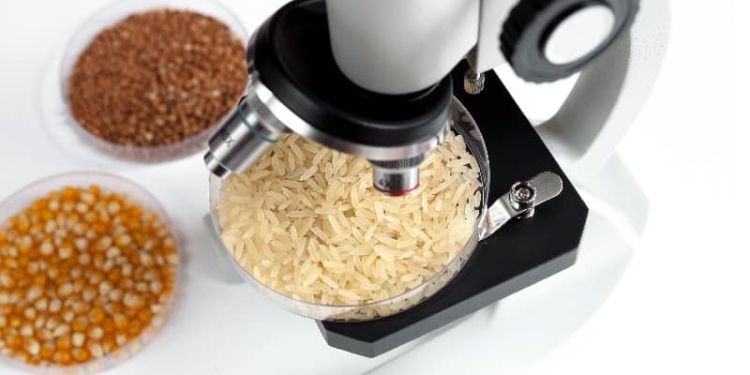Food safety, food security and global health

Safe and nutritious food is a fundamental requirement for human life. Food safety is compromised by microbiological and chemical contamination, which can cause food poisoning and/or chronic disease. Food supply can be affected by climate, poverty and conflict. In addition to this, accidental or deliberate contamination of food can pose known or potential risk to health, such as melamine tainted milk in China or the recent finding of the banned insecticide fipronil in eggs across the EU.
Our research addresses these challenges to food safety, food security and global health. We investigate:
- Health impacts of natural toxins in the LMICs through integration of exposure biomarker measurement and epidemiologic study
- Measurement of natural toxins in food, such as mycotoxins and cyanogenic glycosides Understanding the links between food safety and security, nutrition and public health in many populations
- Reduction of toxins through novel food processing techniques
- Enhancing nutrient utilisation and reducing food waste
In the UK safe food is taken for granted as it is readily available for most people but in many parts of the world, especially in some low and middle income courtiers (LMICs), the ability to provide enough food and nutrition, is an ongoing challenge. Despite of several decades’ collective efforts combating starvation and malnutrition, child stunting prevalence, for those under the age of five, is still staggering high at an estimated 26% of the global population with the highest in Africa and South Asia. Malnutrition poses a double burden, with both undernutrition and obesity affecting societies across the globe.
Some examples of our research:
- We have shown that mycotoxins such as aflatoxin and fumonisins in staple food can adversely impact on child growth in African populations in which stunting and childhood infectious disease are common. This has been achieved through our collaboration with international leading partners in the International Agency for Research on Cancer, The London School of Hygiene & Tropical Medicine |, Partnership for Aflatoxin Control in Africa, International Institute of Tropical Agriculture and funders Bill & Melinda Gates Foundation , Royal Society and National Institute of Environmental Health Sciences (NIEHS)
- We highlighted the potential presence of cyanide-generating compounds in incorrectly processed food for human consumption and aflatoxin in rice samples stored in kitchens.
- In a large interdisciplinary project in Africa Agricultural and Food-system Resilience: Increasing Capacity and Advising Policy (AFRICAP), and with the cooperation of key local stakeholders such as farmers, we explored how the environment may influence mycotoxin levels during field and storage stages, and identified effective postharvest practices that can reduce mycotoxins in food,. This reduces food waste and the economic burden associated with mycotoxins.
- We actively engage with experts from agriculture, plant and animal sciences and government agencies to search for effective solutions reducing the risk of animal feed borne toxins which impact on animal health and animal production.
- We work on increasing food accessibility and enhancing nutrition bioavailability through novel food processing and modulation of the dynamic in vivo digestion process. We design processing and consumer strategies that can be used to decrease unhealthy food consumption and food waste.
Further information
View all members of our research group, research projects, and publications.
PhD projects
We have opportunities for prospective postgraduate researchers. Find out more.
Contact us
If you would like to discuss an area of research in more detail please contact the Research Theme lead: Dr Yun Yun Gong

